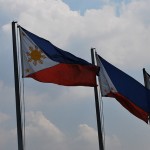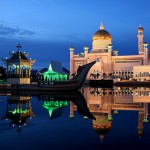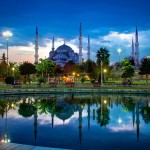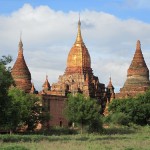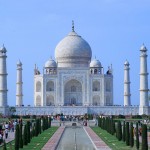Malacanang Palace is yet to release the official schedule for Philippines public holidays in 2014 sometime in the middle of the year in the form of an executive order (EO).
Every year, Philippine public holidays are celebrated on the followings dates, except moveable dates that depend on the liturgical calendar (as in the case of Catholic celebrations) or the sighting of the moon (as in the case of Islamic festivals, dates of which are announced much later). The holiday dates, however, can be moved by the president via an EO to the closest working day, or the president can declare compensatory dates if holidays fall on a Saturday and/or Sunday, to make a long week-end.
Below is the Philippines public holiday schedule 2014.
Regular Holidays
New Year’s Day – Wednesday, 1 January 2014
Unlike other Southeast Asian countries which are predominantly Buddhist and Muslim (and therefore follow their religious calendars for New Year celebrations), Philippines follows the Gregorian calendar and welcomes the New Year with grand celebrations, complete with elements borrowed from the Chinese and Spanish and traditions handed down from their (pagan) forebears. Filipinos practice a multitude of pagan rituals and “feng shui” to usher in fortune and good health at the start of the year. Filipino families thus wear polka-dotted clothes (round objects signify money), prepare 12 fruits (nothing sour and preferably round), put money in their pockets, and hang bananas in their doorsteps as the New Year’s Eve approaches, to name a few. At the stroke of midnight, they light sparklers and firecrackers in the belief that noise wards off evil spirits. In the provinces, adolescent boys and full-grown men have embraced the safer alternative of creating booming sounds (minus the light display) through the use of home-made hand-held cannons. Then, families share a midnight feast called “Media Noche,” which should not contain food that melts (because good luck might evaporate) or food items made from flying fowls like chicken (because good fortune might fly away). Departed members of the family are given offerings on the household altars while some families even hold Thanksgiving masses in their homes before the year ends.
Maundy Thursday – Thursday, 17 April 2014
On the day leading to the commemoration of Jesus Christ’s crucifixion, Filipino Catholics start the three-day procession along the Way of the Cross (Via Crucis) which culminates on Good Friday and concludes on Black Saturday. Catholic priests hold masses on this day when they reenact the Last Supper and Jesus’ washing of His disciples’ feet.
Good Friday – Friday, 18 April 2014
As an overwhelmingly Catholic nation, the Philippines commemorates the crucifixion of Jesus Christ in epic proportions. The country grounds to a halt as Filipinos troop en masse to their provinces to celebrate the Holy Week (the week leading to Easter Sunday) with their families, relatives and friends. Government, commercial and official transactions come to a standstill on Good Friday, as the streets are thronged with devotees participating in the reenactment of the burial procession of the “Santo Entierro” or the statue of the dead body of Christ. Devout Catholics then line up back in the church to venerate – kiss the feet – the image of the dead Christ. The deeply religious perform extreme penance on this day, flagellating themselves on the streets, and even participating in actual crucifixion rituals complete with real nails and costumed Centurions.
Araw ng Kagitingan – Wednesday, 9 April 2014
On this day in 1942, Filipino and American soldiers held off invading Imperial Japanese forces in Bataan and Corregidor to slow down the latter’s victorious sweep of Southeast Asia. To commemorate the courageous stand of Filipino and American servicemen, a wreath-laying ceremony at the Shrine of Valor in Mt. Samat, Bataan, is presided over by the President of the Philippines and attended by key government officials, survivors, WW II veterans and their families. This day is known by American veterans as the Day of Valor.
Labor Day – Thursday, 1 May 2014
The economic and social contributions of the Filipino “manggagawa” (laborers and blue collars) are remembered and honored on this day. Vigilant cause-oriented groups, particularly the Kilusang Mayo Uno (KMU or the May First Movement), hold massive street rallies and demonstrations in Manila and in the capital cities of the provinces on this day to let the government and the people know the plight of the laborers and demand increase in wages and labor reforms.
Araw ng Kalayaan – Thursday, 12 June 2014
On this day in 1898, the Philippines declared independence from Spain. Filipinos celebrate the Independence Day with simultaneous flag-raising ceremonies all over the country.
Araw ng mga Bayani – Monday, 25 August 2014
There are thousands of unsung heroes on the road to achieving Philippine independence under Spanish and American rule. They are all remembered and honored on this day in wreath-laying rites at the Libingan ng mga Bayani (Tomb of the National Heroes), Tomb of the Veterans of Revolution, and the Pathway to Glory in Heroes’ Square inside Rizal Park. Filipino-Chinese firefighters who died in the line of duty are honored in Manila North Cemetery.
Bonifacio Day – Sunday, 30 November 2014
The birthday of the Father of the Philippine Revolution is commemorated on this day with wreath-laying and 21-gun-salute ceremonies in Bonifacio Plaza (Tondo), Bonifacio Shrine (Manila), and Bonifacio Monument (Caloocan). Peasant demonstrations and street rallies also occur on this day to honor Bonifacio’s working class roots and the Filipinos’ struggle for independence from entrenched colonial influences and poverty.
Christmas Day – Thursday, 25 December 2014
“Pasko” is one of the biggest holidays in the Philippines. Families and friends often hold reunions on this day, go to beach and mountain resorts to feast on left-over Noche Buena food, or simply stay at home to relax and look back (and open gifts!).
Rizal Day – Tuesday, 30 December 2014
On this day in 1896, Jose Rizal, Philippine’s national hero whose writings angered the Spanish colonizers, was executed by firing squad in what is now known as the Rizal Park in Ermita, Manila. His role in Philippine revolution that led to independence is remembered on this day in a wreath-laying ceremony at the foot of his statue in Rizal Park, presided over by the President of the Philippines.
Check out the best hotel offers before planning your trip to the Philippines.
Special Non-Working Holidays
Black Saturday – Saturday, 19 April 2014
On this day, Catholics participate in dusk candlelit processions bearing the image of the mournful black-veiled “Dolorosa” (grieving Virgin Mary) and other women – Veronica, Martha and Mary Magdalene – who played important roles in Christ’s life or helped Him on His way to the Calvary.
Ninoy Aquino Day – Thursday, 21 August 2014
On this day in 1983, former senator Benigno “Ninoy” S. Aquino, Jr. (father of the incumbent Philippine president), a prominent figure against Pres. Marcos who imposed the Martial Law, was assassinated at the tarmac of the airport that is now named after him. Wreaths and garlands are offered in his tomb at the Paranaque Manila Memorial Park on the anniversary of his death.
All Saints’ and All Souls’ Day – Saturday and Sunday, 1 and 2 November 2014
“Undas” is the two-day period that Filipinos devote to remembering their departed. On the week leading to “Undas,” graveyards are cleaned and repainted, and Filipinos troop en masse to their home provinces to light candles, say prayers and offer flowers at the tombs of their ancestors.
Christmas Eve – Wednesday, 24 December 2014
The highlight of the Filipino Christmas Eve is the Christmas dinner called “Noche Buena” (literally “good meal”). On the days leading to “Pasko,” families are busy buying gifts, new clothes and food (usually after the Christmas bonus has been given). Filipinos go to Christmas mass, exchange gifts (more common in affluent families) at the stroke of midnight, and share “Noche Buena” before retiring. Children (non-official) and church or school carolers (official) go house to house to sing carols and receive cash gifts in return.
New Year’s Eve – Wednesday, 31 December 2014
On the days leading to New Year’s Eve, Filipino households are busy cleaning and adorning their homes, preparing the “Media Noche,” and buying gifts, sparklers, firecrackers, “12 fruits” and other trinkets that are thought to bring good luck.
Special Working Day (No Classes and Work in Schools)
EDSA Revolution or the People Power Anniversary – Tuesday, 25 February 2014
On this day in 1986, Pres. Ferdinand Marcos, who placed the Philippines under Martial Law, was ousted through a bloodless coup that came to be known since then as the “People Power.” Every year, people still gather along Epifanio de los Santos Avenue (EDSA), particularly at the People Power Monument and EDSA Shrine (less than 1KM apart) to commemorate the peaceful outcome of ousting presidents Ferdinand Marcos in 1986 and Joseph Estrada in 2001.
Explore the rest of the world
More from my site
Article by Chris
Chris had a passion to contribute to society especially to fellow travelers like himself. He also had a passion for Southeast Asia and frequently visited. While brainstorming ideas, he decided that a travel blog dedicated to his favorite countries, Thailand and Singapore, could be more beneficial than any guidebook. Only one year later did the blog’s success bring in more writers, more countries, and more readers.
- Google+ |
- More Posts (327)
Help others get the information they need by liking or sharing our page!
Follow @followloveblab

